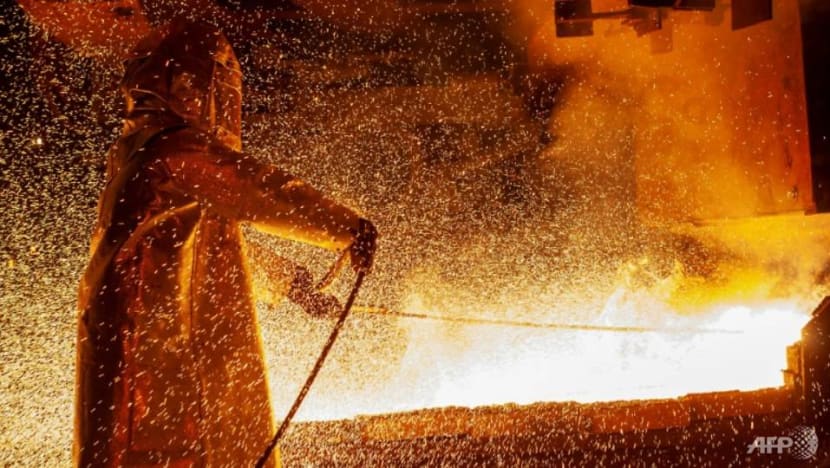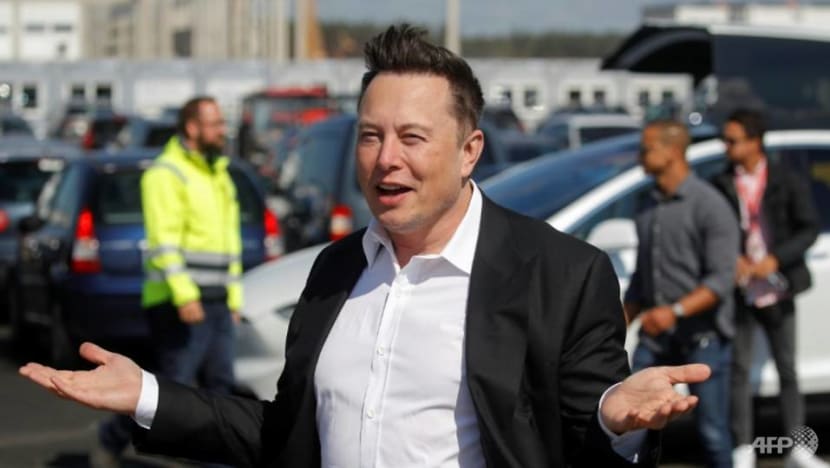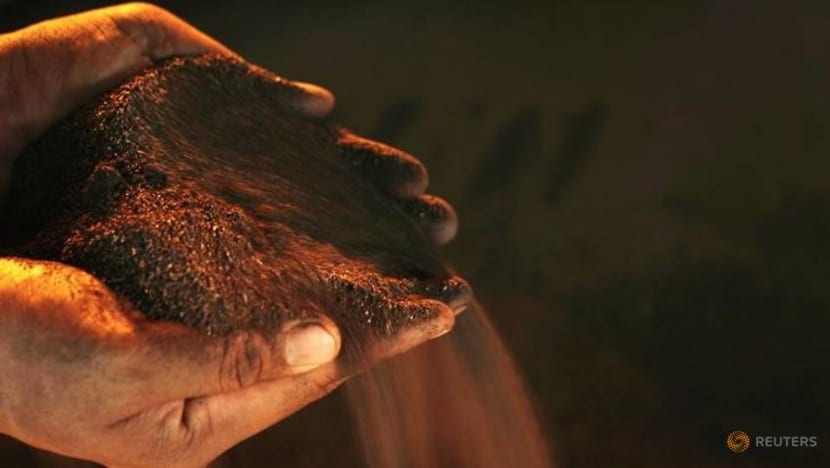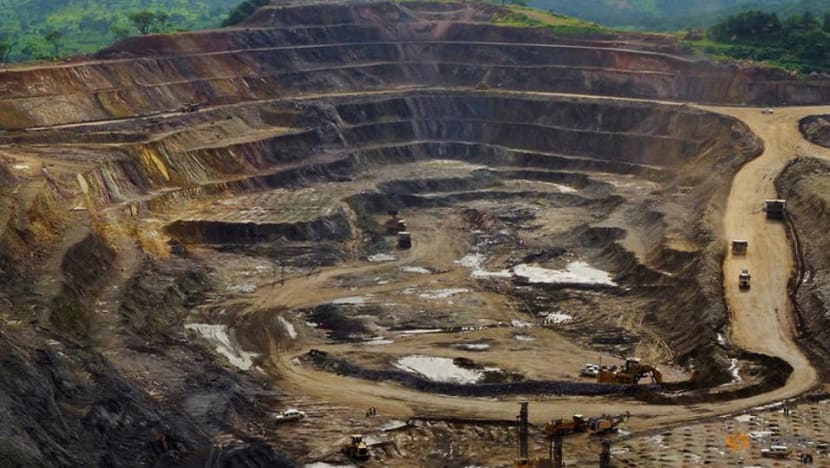Indonesia is poised for EV riches as Tesla circles, but a nickel rush could hurt the environment

Nickel smelting at an Indonesian facility in Soroako, South Sulawesi AFP/Bannu MAZANDRA
BANGKOK: As American electric vehicle maker Tesla eyes up a hefty investment in Indonesia, concerns are growing over the potential environmental consequences of a nickel mining rush.
Tesla has reportedly tabled a proposal to establish a battery production facility in the country, though no official announcement has been made and government decision-makers remain tight-lipped about details.
Still, the prospects of Indonesia becoming a global hub for battery production in the electric vehicle (EV) revolution, and a key link in the global supply chain, has already seen mining and nickel processing ramp up across the country.
Indonesia has vast resources of nickel - it has about a quarter of the entire world’s supply. It is an increasingly crucial metal in batteries due to its properties that enable mass energy capabilities. Macquarie Bank analysis estimates Indonesia could be the source of half the global supply of nickel and stainless steel within four years.
Nickel is seen as a replacement battery component for cobalt, which is more expensive and poses human rights issues due to it being mined in the Democratic Republic of Congo.
"I'd just like to re-emphasise, any mining companies out there, please mine more nickel. Wherever you are in the world, please mine more nickel," Tesla CEO Elon Musk said during a Tesla quarterly conference call in July last year.

“Go for efficiency, obviously environmentally friendly nickel mining at high volume. Tesla will give you a giant contract for a long period of time, if you mine nickel efficiently and in an environmentally sensitive way. Please get nickel," he said.
But Musk’s call for sustainable nickel in the current Indonesian landscape will be a difficult one to answer, according to analysts. Nickel mining in Indonesia has a dirty track record and the rush to extract and process more of it will add pressure to an industry with opaque rules and regulations.
“I think the statement is an illusion or a contradictory statement. What does sustainable nickel mean? Mining is an unsustainable production,” said Arianto Sangadji, a leading researcher on the industry from the York Centre for Asian Research at York University.
“You must consume large amounts of fossil fuel to power the machines for clearing forests, digging the earth, and transporting ore. The more nickel ore is produced, the more fossil fuel is consumed, which has a great impact on climate change,” he said.
READ: Tesla teams to visit Indonesia to check on investment in EV components, says government
NICKEL MINING ALREADY INCREASING
Records from the Mining Advocacy Network (JATAM) in Indonesia indicate an uptake in nickel interest. There are 328 nickel mining business permits in the exploration stage and 280 nickel mining business permits that have entered the production stage, according to JATAM’s coordinator Merah Johansyah. There may already be thousands of mines operating across the country, many of them small and lightly regulated.
Johansyah has observed the impact of mining in local communities and advocated for the rights of workers and protection of the environment. He is concerned that more big investments will worsen existing problems, after witnessing pollution in lakes and drinking water sources, damage to coral reefs, deforestation, fishing impacts and frequent flooding.
“There is a threat of a destructive wave behind this business and investment. The threat is very big, especially in the areas where nickel will be mined,” he said. “This mining is also inseparable from the eviction and expulsion of indigenous people, that's a problem that will also get bigger.”
Most nickel mining occurs in a small patch of Central Sulawesi, an “absolute biodiversity hotspot”, according to Steve Brown, a consultant on the responsible sourcing of metals.
“It’s full of these really incredible endemic species and unique types of rainforest. The mines are also close to the coast, generally, and all of that coast is part of what’s called the Coral Triangle, a marine biodiversity hotspot,” he said.

Dirty aspects of nickel mining are expected to be difficult to mitigate. From the mines to the smelters, nickel leaves an impact, on local ecosystems and on climate change.
But the opportunity for Indonesia remains enormous; one potentially even more valuable than its vast palm oil industry. The International Energy Agency predicts that some 70 million EVs will be on roads by 2025 and a huge number could contain battery parts mined and manufactured in Indonesia.
It represents a huge turnaround for a sector that has been struggling for years.
ECONOMIC OPPORTUNITIES
Nickel miners had previously been languishing as the commodity price sunk. But the likes of state firm Aneka Tambang and Vale Indonesia, a component of one of the biggest mining companies in the world, have seen their shares rocket since last year.
Last year, Indonesia banned most nickel ore exports, which were typically headed for stainless steel makers, two years ahead of schedule in order to develop its full nickel supply chain.
So, welcoming Tesla’s investment and operations to Indonesia would prove a major boon for the country. Already, other large companies, China’s Contemporary Amperex Technology (CATL) and Korea’s LG Chemical have entered the nickel game with multi-billion dollar operations.
READ: Indonesia says US$9.8 billion EV battery MOU agreed with LG Energy Solution
Analysts say that for Tesla, any major move up the production chain in Indonesia, closer to the mines themselves will pose a risk. Currently, the company does not produce its own batteries, and doing so would expose it to greater scrutiny.
Tesla did not respond to CNA’s request to comment about its operational plans in Indonesia.
“If Tesla gets involved in Indonesia, they’re taking a risk because there are still some question marks in many people’s minds about the sustainability performance of Indonesian nickel mines,” Brown said.
“Indonesia can and has produced very sustainable nickel. But that is insufficient production to feed the EV boom. Certainly, the western nickel producers, particularly in North America, are jumping on this sort of narrative, that they are producing clean, green nickel and implying that Indonesian nickel is not.
“With that sort of narrative floating around, if Tesla does invest, they’re taking a risk of being caught up in that reputational risk area. Immediately there will be a lot more scrutiny,” he said.

There are also risks of staying out of the battery game, which would force Tesla to continue purchasing its batteries from secondary companies, who would likely be sourcing their nickel from Indonesia anyway.
“If Tesla’s plans to ramp EV production up massively by 2030 are to be achieved, it has to consider Indonesian nickel,” said Jim Lennon, a senior commodities consultant at Macquarie Bank.
“The problem for the battery market is that Indonesia is the only country that has large volume growth potential and that coal is the main fuel for power generation,” he said.
Even if Tesla stays away though, Indonesia is still expected to reap the rewards from extracting more of the valuable metal. The government plans to form a battery manufacturing company with state-owned entities leading the project. Indonesia also plans to export 200,000 EVs of its own by 2025.
“Even if Tesla’s investment announcement does not go ahead, Indonesia is well-positioned to establish this industry at scale given the number and size of the planned investments,” said Koketso Tsoai, an auto industry analyst at Fitch Solutions.

With confidentiality agreements in place, the Indonesian government has confirmed few details about its discussions with Tesla, but key leaders, including President Joko Widodo, have appeared to be attempting to publicly woo the company.
“From our side, we are very excited to work with Tesla to develop lithium batteries for EVs. We can say that Tesla is one of the best in the world,” Septian Hari Seto, deputy for investment and mining at the Coordinating Ministry of Maritime Affairs and Investment, said in a media briefing earlier this month.
"If they only want to take raw materials, we will not be interested. For other details, I cannot disclose. But the collaboration we are doing with Tesla is beyond just taking raw materials.
“Later, we can learn from them. Because one of the things we ask of them is technology transfer,” he said.
THE NEXT GREAT CHALLENGE
Beyond the pure economics of staggering growth of Indonesian nickel - production could grow from an estimated 100,000 tonnes in 2014 to 1.1 million tonnes by next year - the injection of a company like Tesla could fast-track cleaning up the sector, in terms of energy use, waste disposal, forest management and worker rights.
For now though, in its pursuit of growing its extraction potential, the Indonesian government has wound back environmental protections, rather than enhancing them. This could jeopardise Tesla’s investment, according to Brown.
“They’re trying to speed up investment and attract more investment. When it comes to Tesla, doing that actually might have the opposite effect,” he said.
“It might scare off a company like Tesla because they’re worried about being in a country that has low environmental standards. If all your neighbours around you are performing badly, you get caught up in that sort of ‘dirty Indonesian producer’ sentiment.”
Tesla in the past has admitted that it does not have full oversight over its battery supply chain, something that would likely need to change if they enter Indonesia.

READ: Commentary - Why I will probably never own a car – not even an eco-friendly one
“They must take an environmental and social approach,” said Dwi Sawung, energy and urban campaign manager for the Indonesian Forum for the Environment (Walhi).
“They must know whether the land used for mining was obtained properly or if it was confiscated from the people who previously lived there. They have to pay attention to whether there is corruption in the investment process or not,” he said.
“Then, Tesla has to make sure that local people could benefit from the mine and make sure they are not poisoned in the long term.”
The promise of EVs is their ability to minimise carbon emissions on roads around the world - a climate change solution and driver of economic development.
Tesla’s next great challenge will be proving it can produce its planet-friendly vehicles without actually leaving a dirty footprint.















